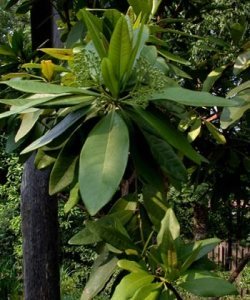Oil Of Cinnamon; Cinnamon OilCinnamomum cassia common names: cinnamon oil, cassia, cinnamon bark, cinnamon twig  Oil of cinnamon is one of the natural remedies for indigestion. Used mostly in cooking throughout the world, is comes from a topical evergreen tree growing in the rain forests of India, Sri Lanka and the Philippines in addition to the West Indies. Oil of cinnamon is one of the natural remedies for indigestion. Used mostly in cooking throughout the world, is comes from a topical evergreen tree growing in the rain forests of India, Sri Lanka and the Philippines in addition to the West Indies. In herbal medicine, the reddish brown bark and young cinammon twigs are cut and allowed to ferment in the fields before gathering for drying. Oil of cinnamon can be used as an oil added to water or as a tea, or grated onto food. It is used as a digestive aid and to fight HIV/AIDS, to stop uterine bleeding and to prevent heart attack. Health Benefits
Considerations In UseThis herb can be used as an tea, tincture or as a grated spice in food. Men with prostate problems should avoid cinnnamon. People allergic to balsam of Tolu should avoid oil of cinnamon due to cross reactivity (allergy to one can cause allergy to the other). | | |
|
Information
Treatment
How To
Legal
| ||
|
| Home Page | Privacy Policy |Medical Disclaimer |Written by Mary Kay Betz |
Copyright©
2008-2012
| ||

